Push-ups to fake guests: Curious African coronavirus moments
- Published
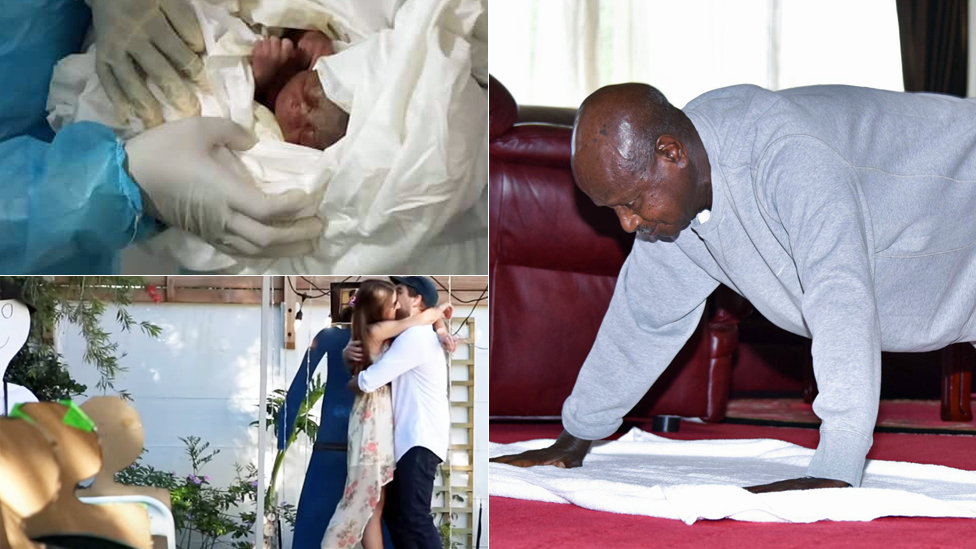
As people across the world adapt to the reality of life under lockdown, we bring you six curious coronavirus moments from Africa.
1) Push-up challenge
A politician in his 70s is perhaps the oldest person to take part in a viral video challenge that's gripped many in The Gambia, external.
"This 71-year-old man is still strong," Ousainou Darboe told the BBC, after managing to complete just 10 push-ups but vowing to reach 25 in the future.
Allow X content?
This article contains content provided by X. We ask for your permission before anything is loaded, as they may be using cookies and other technologies. You may want to read X’s cookie policy, external and privacy policy, external before accepting. To view this content choose ‘accept and continue’.

"What 25-year-olds can do, I can do it. I'm challenging all other leaders in the country to do the same thing, so that African leaders are [not] just people who are sedentary."
Over the last week, numerous politicians and public figures in The Gambia have taken part, including renowned "king of kora" Jaliba Kuyateh.
Gambian journalist Omar Wally says people from all walks of life are joining in the fun that has a serious message at heart: "Stay at home and stop the spread of coronavirus."
It might have been an inspiration for Uganda's 75-year-old president, who released an indoor exercise video on Thursday, external - a day after banning exercise in public.
Yoweri Museveni managed 21 press-ups in one go, and also urged others to continue such a regime inside their homes.
2) The new mother who has not met her baby
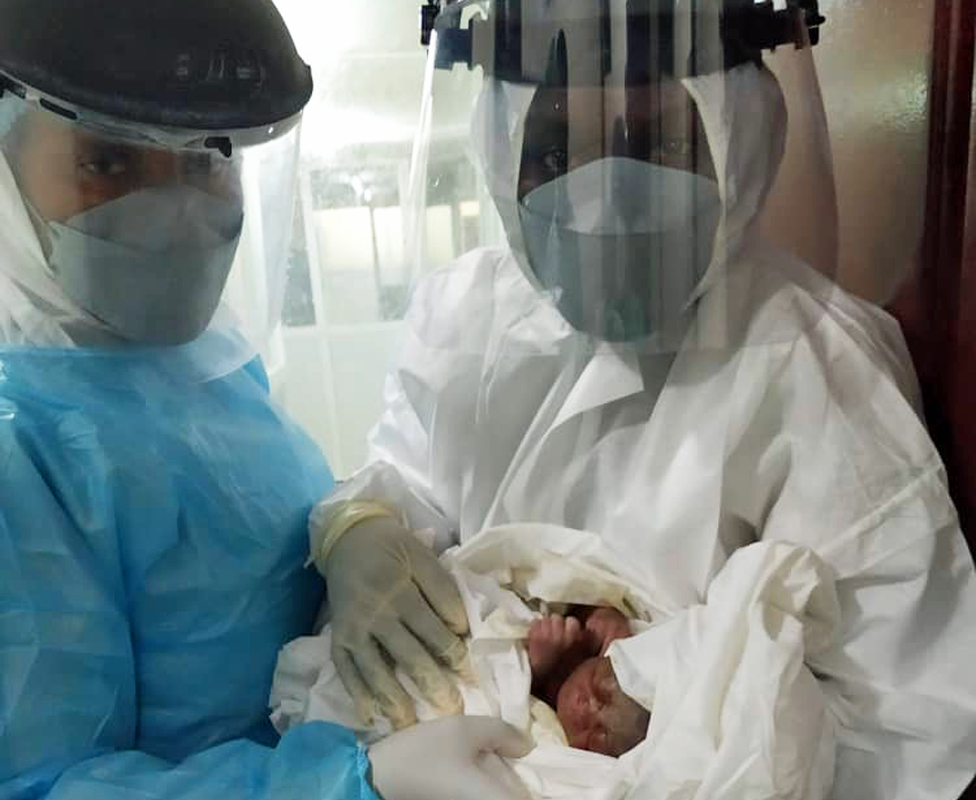
The doctors whisked the newborn away to prevent her becoming infected
A 19-year-old coronavirus patient who gave birth in an isolation ward in Cameroon at the weekend says she is yet to meet her daughter.
Doctors confirmed to the BBC that they rushed the infant to the neonatal ward to prevent her catching the virus.
First-time mother Marie Youri said medical staff had reassured her: "I felt very alone. I was really surprised and I was crying. The doctors supported me, they told me it would be alright."

You may also be interested in:

Mother and child are said to be in good health and remain in separate wards in a hospital in the capital, Yaoundé.
Baby Foraya was born prematurely weighing 2.1kg (4.6lb) and has not displayed any symptoms of the virus. Ms Youri is receiving oxygen treatment and will be tested again for coronavirus in 10 days' time.
Kemme Kemme Marileine, one of the doctors who delivered the baby, said she was "very, very emotional with that special case".
"I was thinking about that young lady... having her very first pregnancy, and I was like: 'I want this baby to be alive.'"
Her colleague, gynaecologist Yaneu Ngaha Bondja Junie, has urged expectant mothers who have contracted the virus not to panic.
3) Affordable hands-free washing units
The students wanted something that was hygienic and affordable
A hands-free washing unit created by students at a Ugandan university is to be rolled out across all its campuses.
The sensor- and solar-powered device costs about $24 (£19.50) to produce and is designed with low-income users in mind.
"This can be fitted on any water container - a jerrycan, tank or tin, depending on what one can afford," lecturer Umar Yahya told the BBC.
It is the work of student researchers Lucky Mwaka and Mansoor Muhammad at Islamic University in Uganda.
Their idea was to use technology to minimise contact with potentially contaminated surfaces.
"In cases where water is scarce, you use exactly what you need to wash your hands," Mr Mwaka explained.
4) Cardboard guests attend 'wedding'
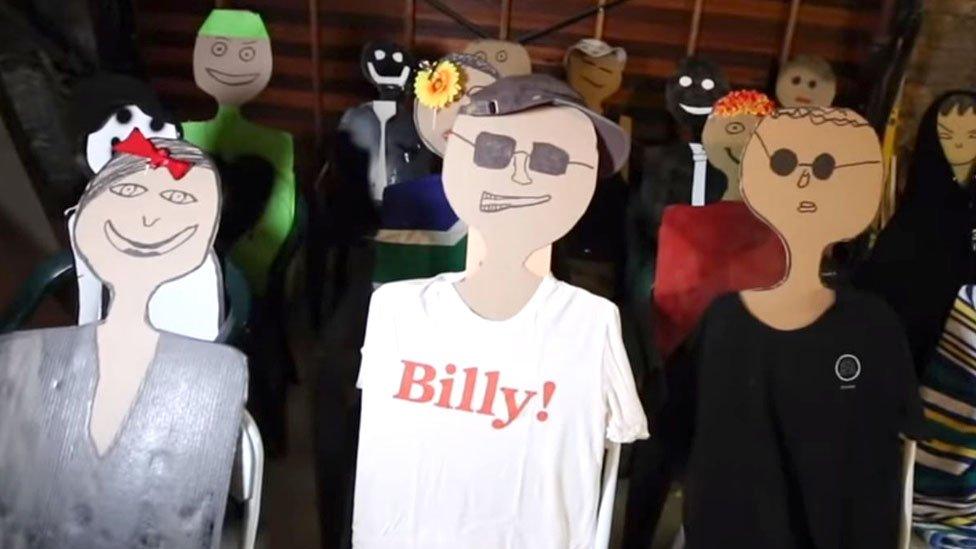
Dan Mace did not want the lockdown to totally scupper his wedding
Two-dimensional cardboard cut-outs replaced guests at a "wedding" in South Africa, after the couple had to postpone the real thing because of the coronavirus lockdown.
Public gatherings there are banned, nothing but essential movement is permitted, and there is even a ban on buying alcohol and cigarettes.
In fact, last weekend a couple in South Africa were arrested for going ahead with their nuptials - along with their guests.
But filmmaker Dan Mace did not want to disappoint his fiancée Gabrielle Esterhuizen, so he surprised her by organising a lockdown-compliant ceremony in their garden in Cape Town.
He shared a video of their mock service online, which a friend living in the US presided over via video call.
Allow Instagram content?
This article contains content provided by Instagram. We ask for your permission before anything is loaded, as they may be using cookies and other technologies. You may want to read Meta’s Instagram cookie policy, external and privacy policy, external before accepting. To view this content choose ‘accept and continue’.

Their marriage vows were based on a scene featuring the comic character Mr Bean.
"If we weren't having a so-called legal marriage ceremony at the end of the year, this [cardboard cut-out one] would have been the perfect wedding," Ms Esterhuizen said.
5) Free buses, water and electricity
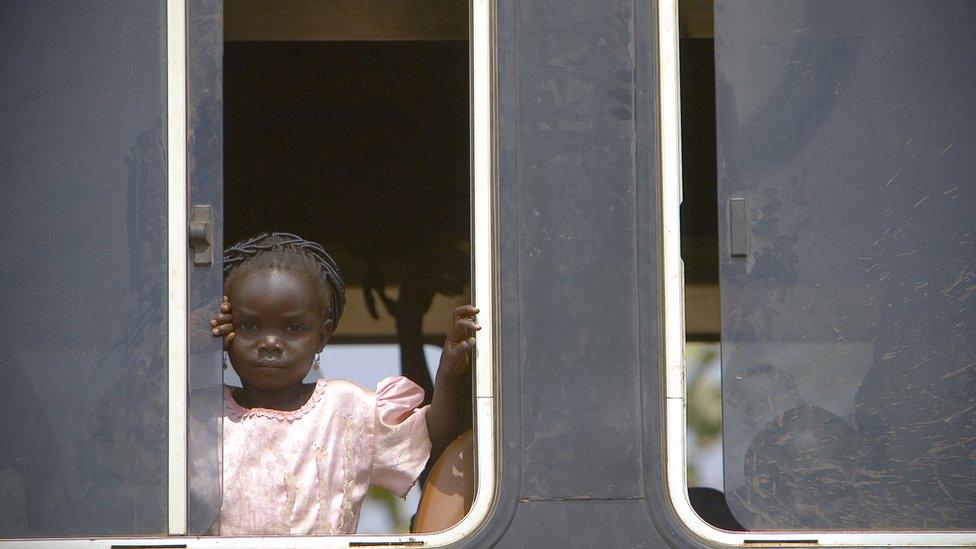
The measures come at a time of political unrest in the country
Household water and electricity bills have been waived in Guinea, where all public transport is now also free of charge.
Prime Minister Ibrahima Kassory Fofana announced the government subsidies this week, which will apply for three months at a cost of about $264m (£212m) to the state.
He said the measures were a key part of the country's efforts to avert a national health crisis that could have "dire consequences on economic activity and people's quality of life".
They come at a time of political unrest in the country over a new constitution. It is also only four years ago that the West African nation battled the deadly Ebola outbreak.
Prices on medicine and all basic necessities have been frozen until June, and taxes on hotels and other tourism-dependent businesses are all postponed until the same date.
Rent payments across public and private properties have been capped until December.
Opposition politician Faya Millimono told a local news site that lowering the price of fuel should also be considered, external.
6) Round-robin poetry
Thirteen poets from across the continent recorded themselves reading lines from The Passage, a 1962 poem from Nigerian writer Christopher Okigbo, to try and bring the work to a wider audience during coronavirus lockdowns.
The round-robin reading has now been edited together into one video:
Allow X content?
This article contains content provided by X. We ask for your permission before anything is loaded, as they may be using cookies and other technologies. You may want to read X’s cookie policy, external and privacy policy, external before accepting. To view this content choose ‘accept and continue’.

Nigerian writer and poet Lola Shoneyin, who organised the project, is on a mission to "introduce young readers and writers to some of the amazing poets that this continent has produced".
She told the BBC that she chose the poem "because of the sense of vulnerability it evokes".
"A lot of people are feeling vulnerable because Covid-19 is so indiscriminate. People are feeling sober and humble.
"I think the supplication in Okigbo's work, captures the moment perfectly.
"I'd love to see more young people reading Okigbo. They will find hope there too."
The poets who took part in the projects were Wana Udobang, Logan February, Lebo Mashile, Titi Sonuga, Lemn Sisay, TJ Dema, Nii Ayikwei Parkes, Clifton Gachagua, Nick Makoha, Efe Paul Azino, Kayo Chigonyi, Kola Tubosun and Natalia Molebatsi.

A SIMPLE GUIDE: How do I protect myself?
HOPE AND LOSS: Your coronavirus stories
VIDEO: The 20-second hand wash

- Published10 April 2020
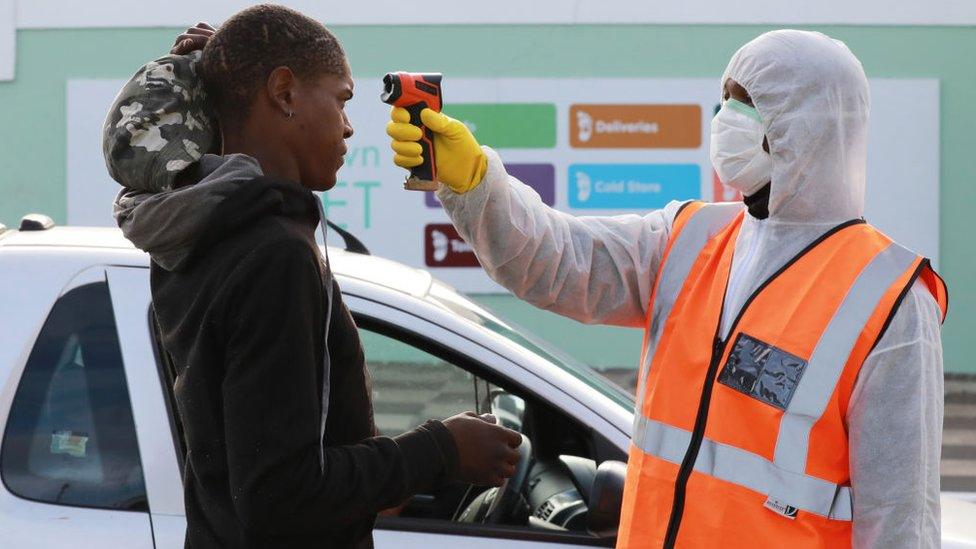
- Published9 April 2020
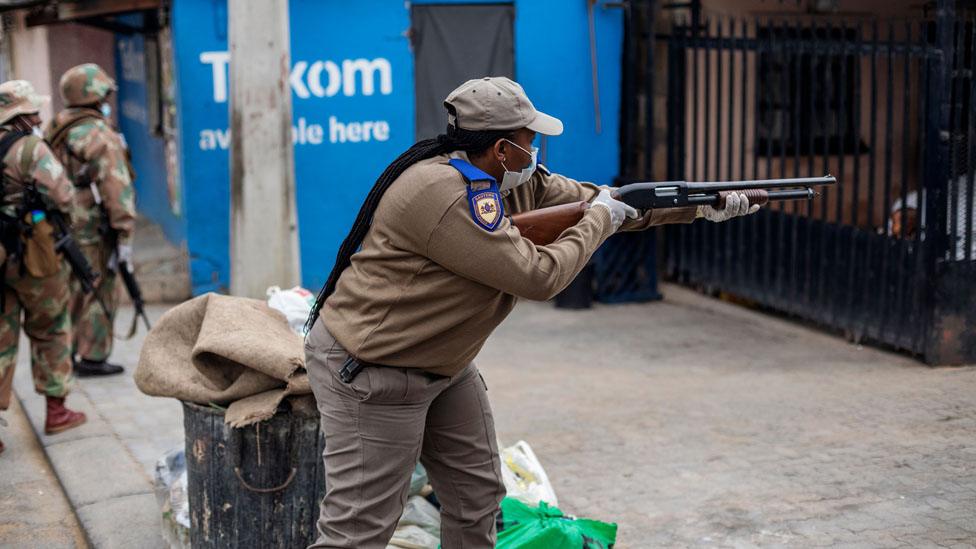
- Published8 April 2020
